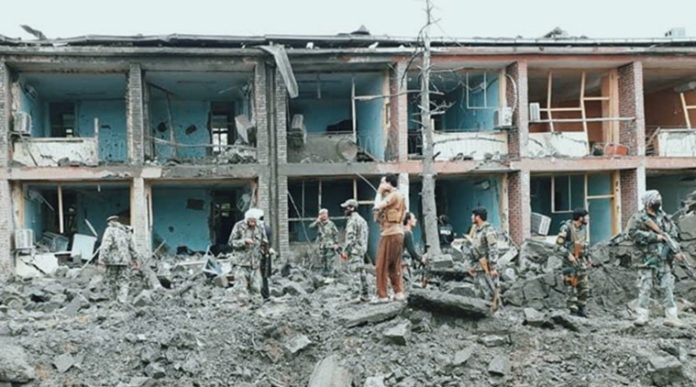New Delhi (NVI): Highlighting its increased aggression, Taliban has carried out over 3,800 attacks since it signed a deal with the US on February 29, which mainly provided for exit of American forces from the war-torn country.
The Taliban attacks have increased despite its commitment to reduction of violence.
The Taliban, which has been mainstreamed by the agreement with the US, has been carrying out attacks at an average of over 55 each day since the February 29 Doha agreement, according to the official statistics quoted by the local media.
In view of the surge in Taliban attacks, President Ashraf Ghani has ordered the forces to go on an offensive against the outfit.
On the eve of Ramadan last month, Ghani had appealed to the Taliban to enact a ceasefire, in view of coronavirus pandemic. But the Taliban dismissed the appeal as improbable and insincere, considering the continued detention of thousands of Taliban prisoners, whose release was one of the main conditions of the deal.
The Taliban demanded the release of 5,000 prisoners from the jails in the peace agreement with the US in Doha.
The Afghan government has so far, hesitantly, released some 1,011 Taliban prisoners as part of efforts to expedite intra-Afghan talks and to prevent the spread of COVID-19 in jails.
In reciprocal move, the Taliban has released 253 Afghan Government prisoners.
It’s now been more than two months since the intra-Afghan talks were supposed to start, and still they haven’t begun.
US Special Representative on Afghanistan Zalmai Khalilzad, who is visiting Doha to hold talks with Taliban and is headed for Kabul to have discussions with the government officials, has expressed concern over increased in violence. He has hoped that the intra-Afghan dialogue would begin sooner than later.
“We believe the sooner the intra-Afghan negotiations begin, the sooner peace will come, and it will be best that this intra-Afghan negotiation happen when we have substantial forces in southern Afghanistan,” he has said.
On the Afghan political impasse, Khalilzad said: “We support of course the Afghans coming together and forming an inclusive government.”
On the recent Taliban attack on a military facility in Paktia province that killed five civilians, Khalilzad said: “Car bomb attack is very negative. We urge the Talibs who say that attack took place because of the government’s declaration of going on offensive, and that there be de-escalation by all sides, and that there should be reduction of violence, not further escalation that would undermine, complicate the moves to intra-Afghan negotiations and the prisoners’ release.”
Khalilzad’s visit to Kabul also comes on the heels of the signing of an agreement between Ghani and his rival Abdullah Abdullah to end the political slugfest which was going on for months. The agreement authorizes Abdullah to lead the peace efforts, as well as to have a 50 percent share of the cabinet, among other concessions.
The US Department of State says “throughout his trip, Ambassador Khalilzad will continue to reinforce the US view that the best path to end the conflict is for all parties to sit together and negotiate an agreement on the political future of Afghanistan.”
The start of the planned intra-Afghan negotiations has faced delays, but now there are hopes that the peace process will stay on track and yield results.








